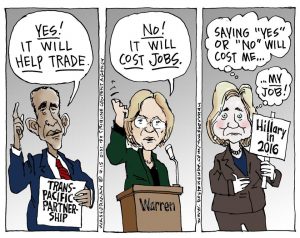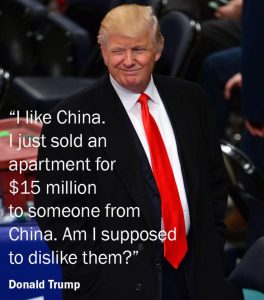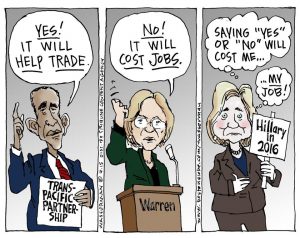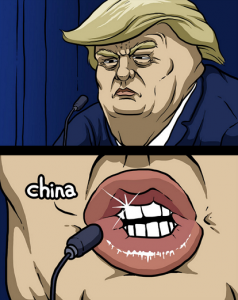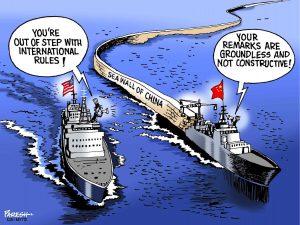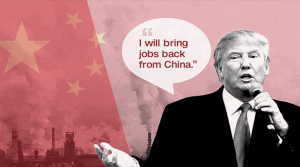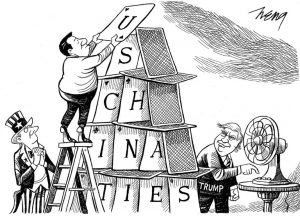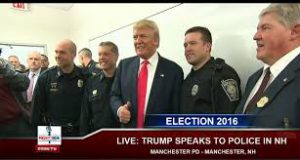 Hillary Clinton is popular among voters as a person who shifts her view on a number of issues: gay marriage, the Iraq War, the keystone pipeline, and multiple trade deals. Clinton currently opposes the Trans-Pacific Partnership yet when she was Secretary of State under the Obama Administration, she “praised the Trans-Pacific Partnership as a deal that ‘sets the gold standard in trade agreements.” At the Presidential debate, Trump accused her of flip-flopping only after he spoke out against the trade deal. Clinton has carefully acknowledged the subject by revealing she at one point agreed with the trade deal, but after closer reconsideration she stated, “it didn’t meet my standards.” When she was discussing the Trans-Pacific Partnership, she never bashed President Obama, but simply stated that, “it didn’t meet her standards.” This is a very calculated statement because instead of looking like an inconsistent flip flopper, she appears more attentive and thorough in regards to trade deals, when, in reality, she changed positions when she realized the deal was not popular among voters. Although Clinton may have a history of flip flopping positions, every time she shifts her opinion, she does so in a very calculated and articulate way.
Hillary Clinton is popular among voters as a person who shifts her view on a number of issues: gay marriage, the Iraq War, the keystone pipeline, and multiple trade deals. Clinton currently opposes the Trans-Pacific Partnership yet when she was Secretary of State under the Obama Administration, she “praised the Trans-Pacific Partnership as a deal that ‘sets the gold standard in trade agreements.” At the Presidential debate, Trump accused her of flip-flopping only after he spoke out against the trade deal. Clinton has carefully acknowledged the subject by revealing she at one point agreed with the trade deal, but after closer reconsideration she stated, “it didn’t meet my standards.” When she was discussing the Trans-Pacific Partnership, she never bashed President Obama, but simply stated that, “it didn’t meet her standards.” This is a very calculated statement because instead of looking like an inconsistent flip flopper, she appears more attentive and thorough in regards to trade deals, when, in reality, she changed positions when she realized the deal was not popular among voters. Although Clinton may have a history of flip flopping positions, every time she shifts her opinion, she does so in a very calculated and articulate way.
Flip Flopping Record
That was not the first Hillary Clinton has switched her position on a trade deal. In 1993, Clinton praised her husband when he signed NAFTA into law, but during her 2008 presidential campaign, she referred to the deal as a “mistake.” However, instead of abruptly moving from one side to another, she cautiously tip toes her way from one opinion to another. For example, instead of outright calling NAFTA one of the worst trade deals our country has every made, she carefully states, “It did not deliver on what we had hoped it would.” Unlike her opponent, she never makes a decision without carefully calculating what and how she will communicate.

